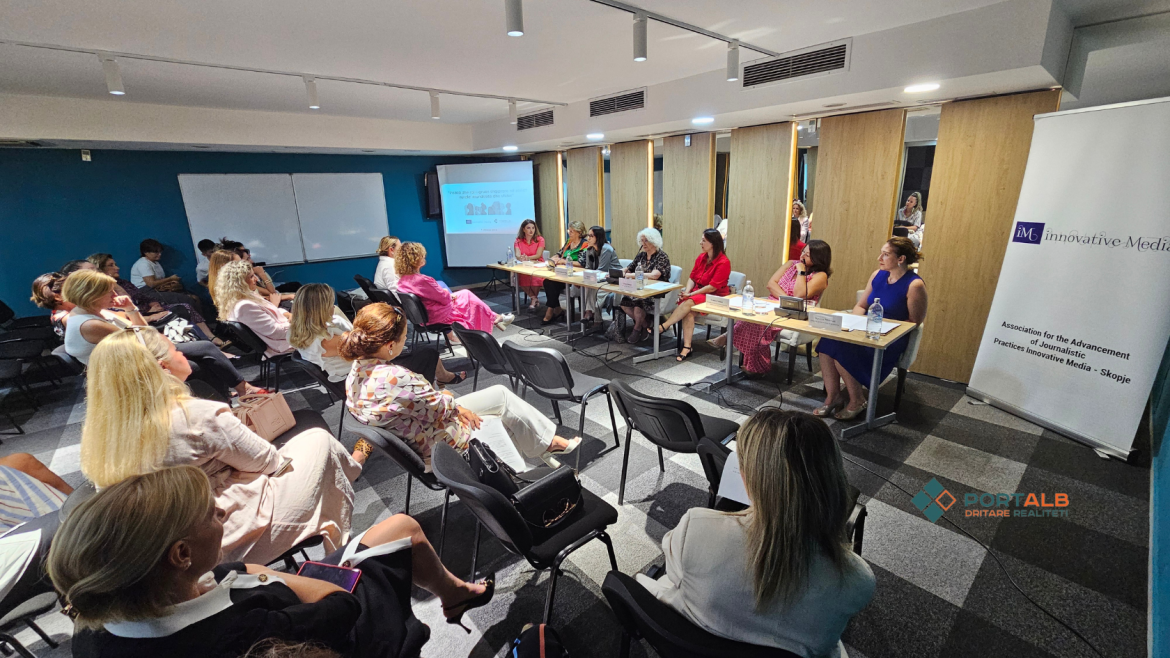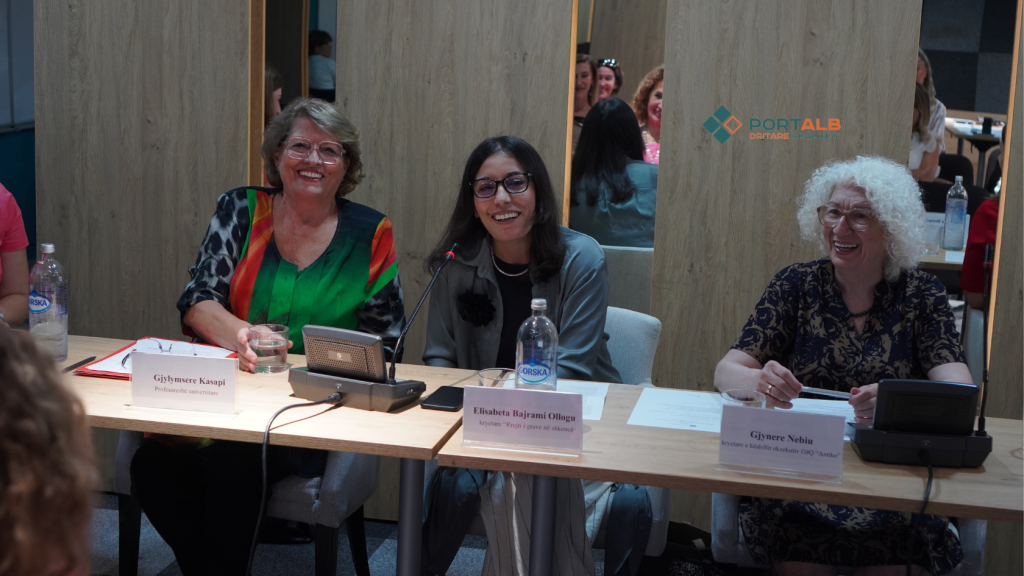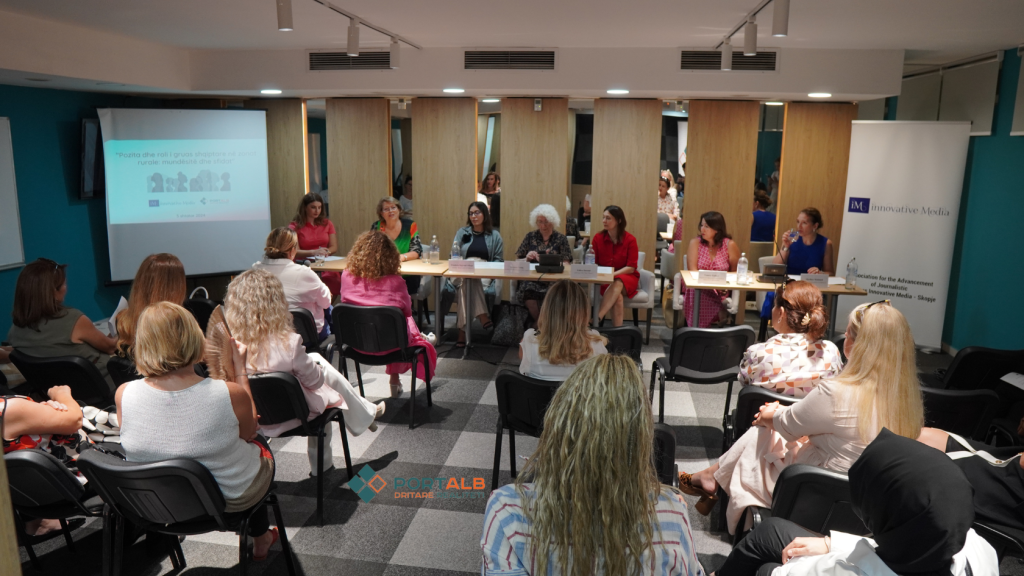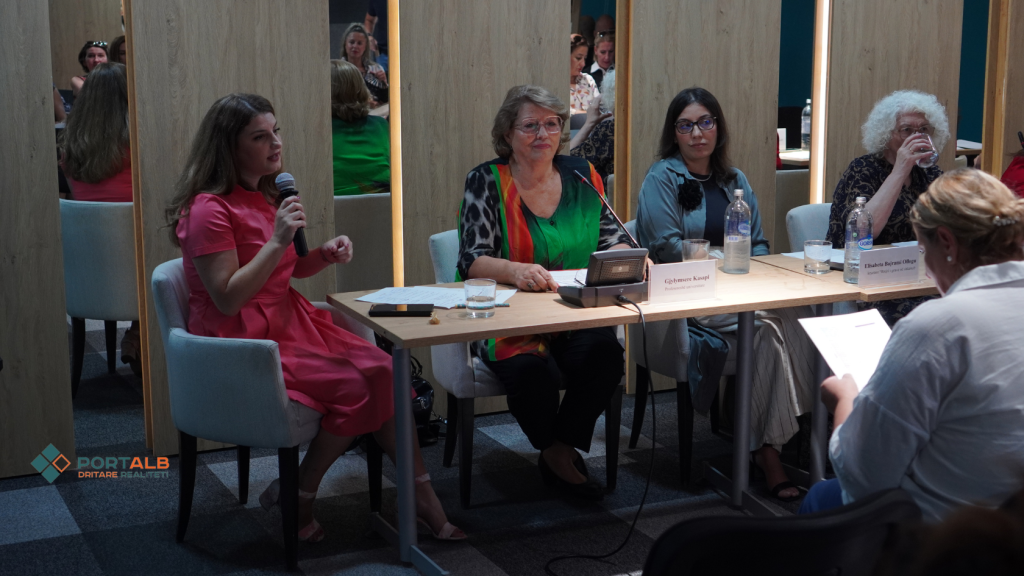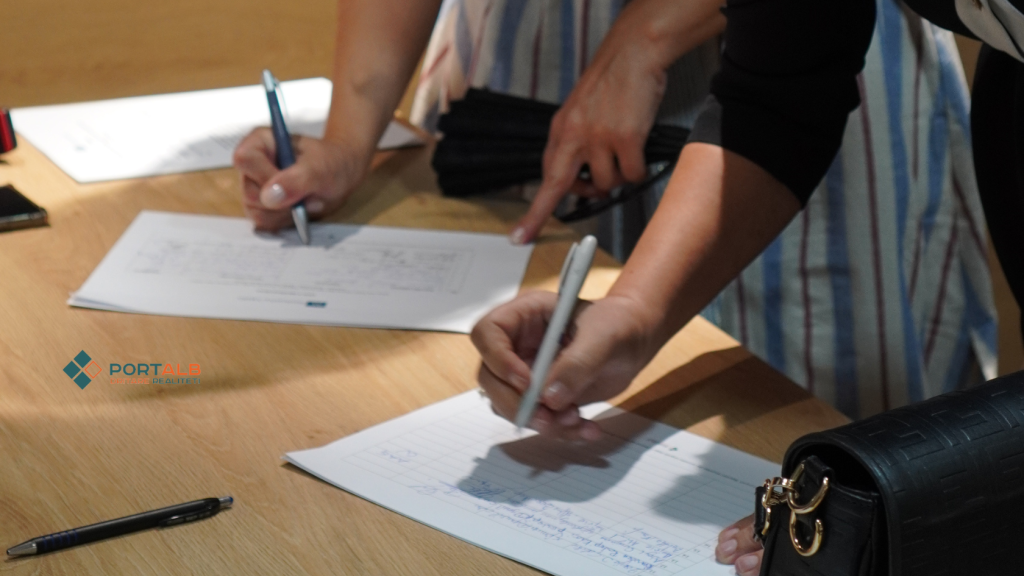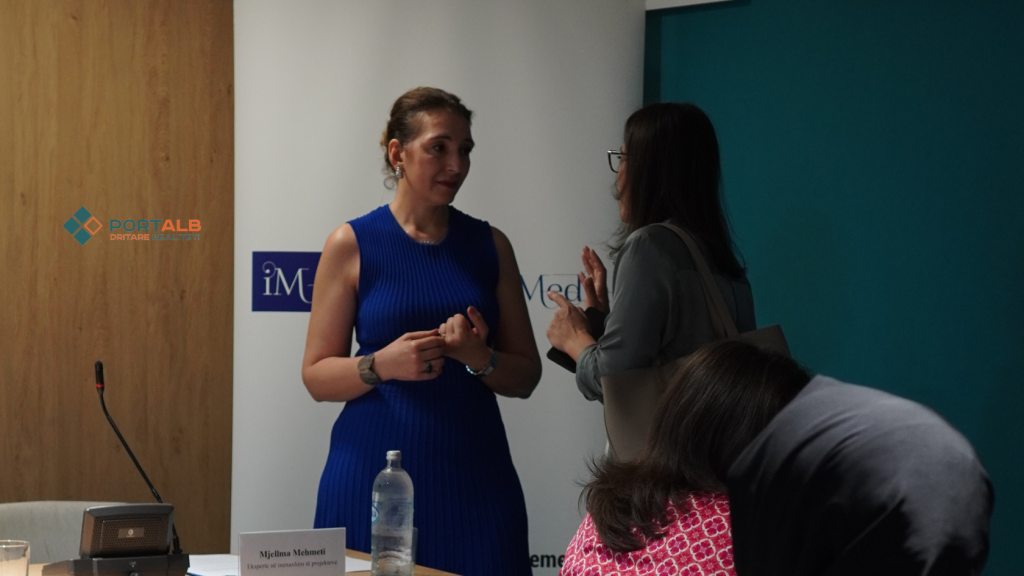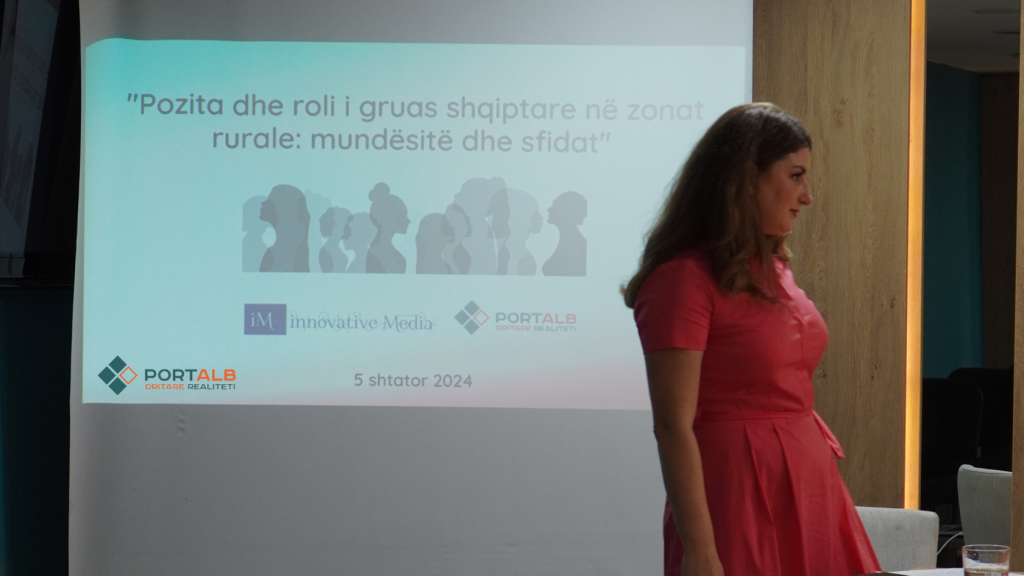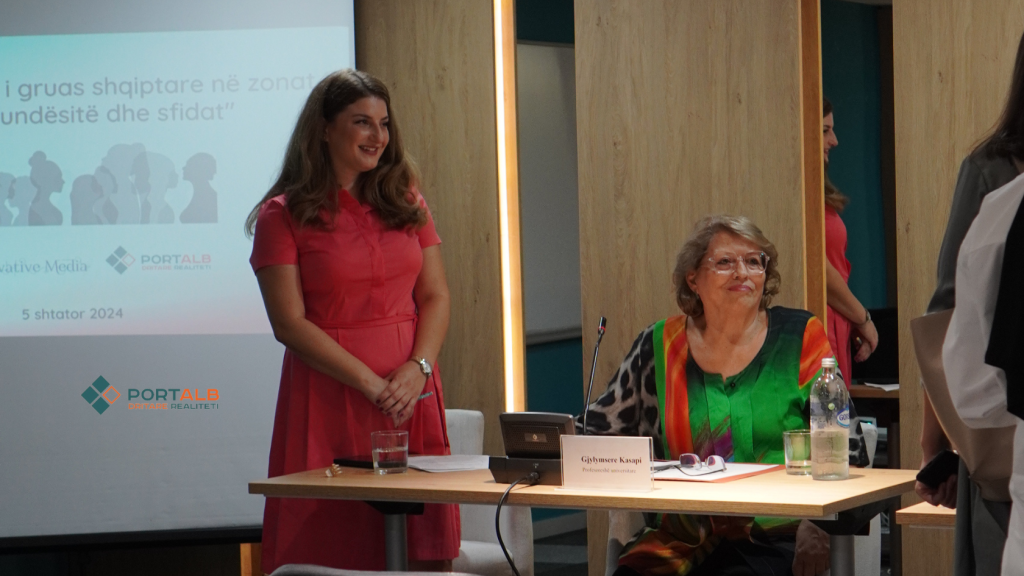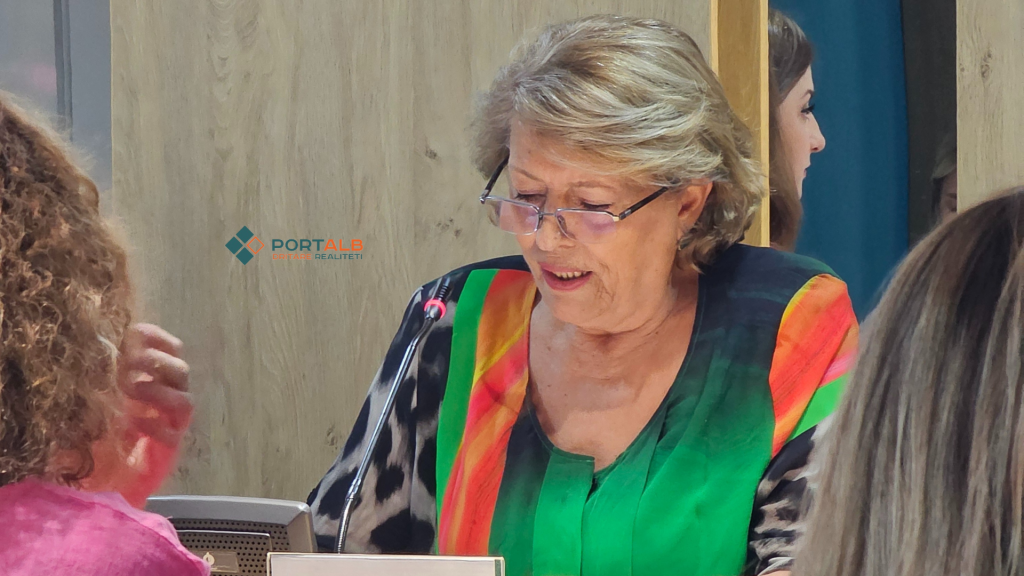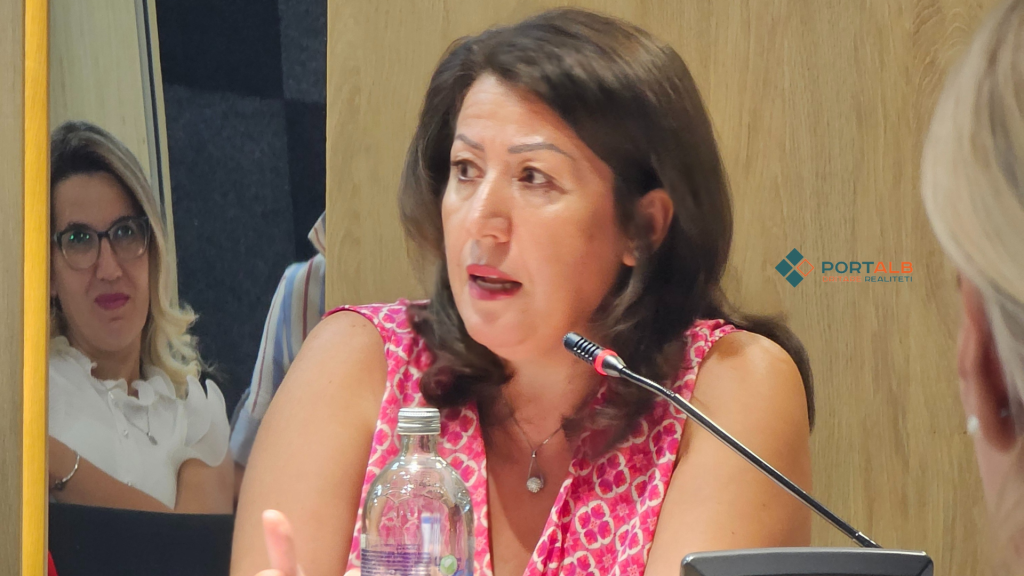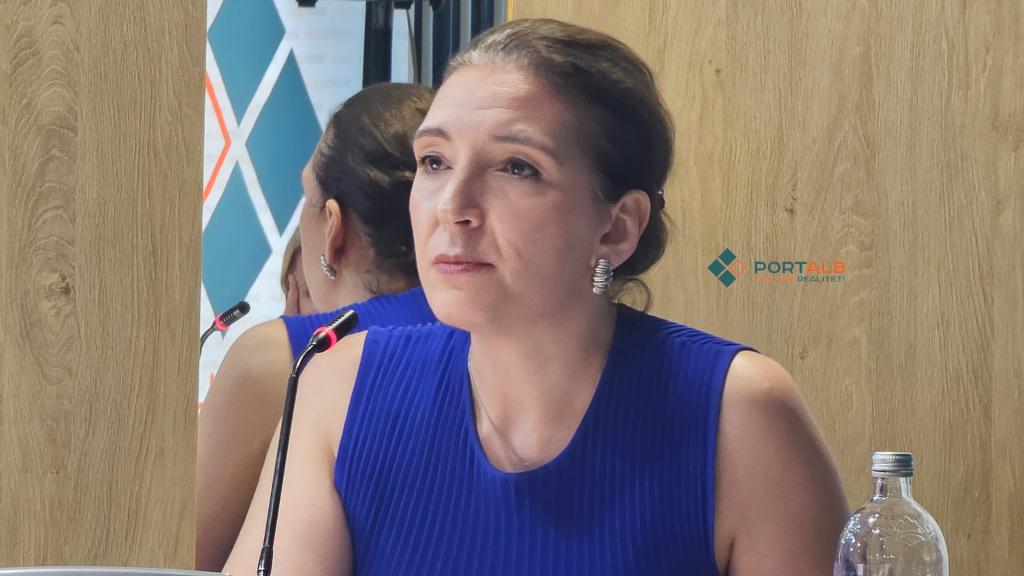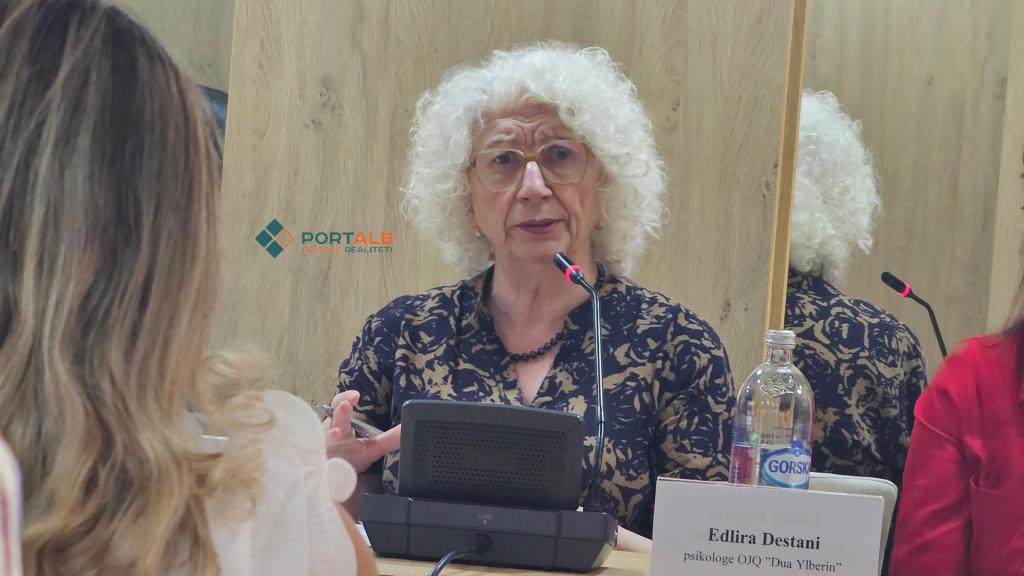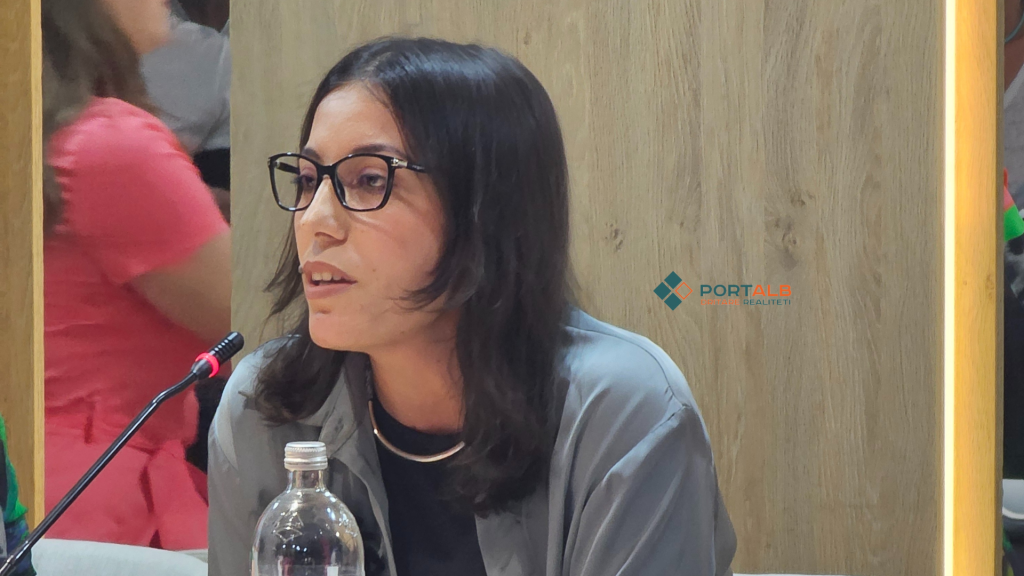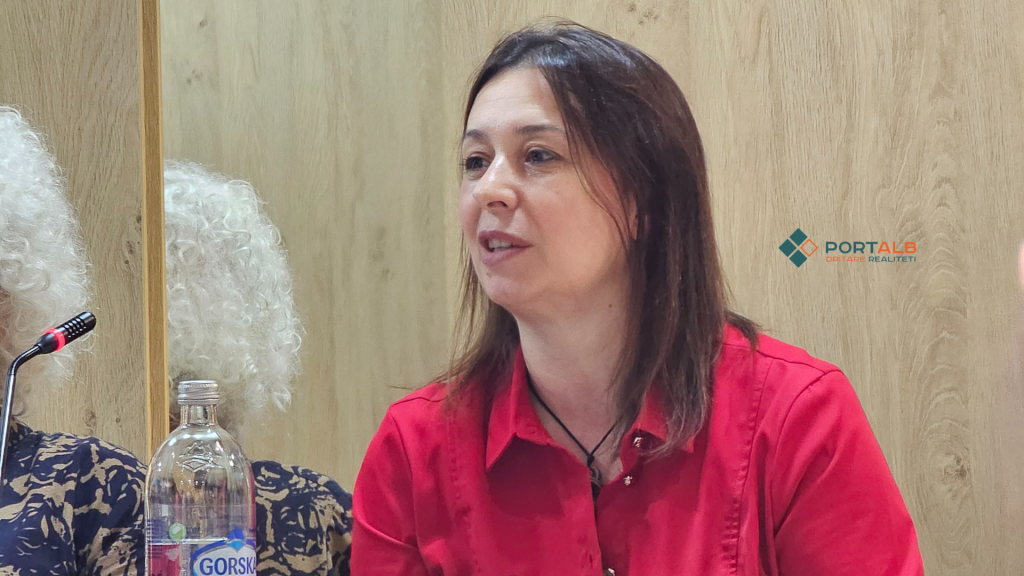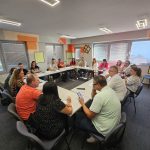Photo by Portalb.mk
The Association for the Advancement of Journalistic Practices “Innovative Media – Skopje,” that supports the portal Portalb.mk, organized the discussion panel “The Position and Role of Albanian Women in Rural Areas: Opportunities and Challenges.”
On 5th of September 2024, the Association for the Advancement of Journalistic Practices “Innovative Media – Skopje”, within which Portalb.mk operates, organized a panel discussion on the topic “The Position and Role of Albanian Women in Rural Areas: Opportunities and Challenges”. This event is part of the project “Reliable and Diverse Reporting in Albanian Language” funded by the UK Government and implemented by the British Council in partnership with the Balkan Investigative Reporting Network, Thomson Foundation and The International NGO Training and Research Centre, INTRAC.
Speakers at the panel discussion were Gjylimsere Kasapi, university professor, Elisabeta Bajrami Ollogu, President of the Women in Science Network, Gjynere Nebiu, President of the Executive Council of “Antiko” organization, Edlira Destani from “Dua Ylberin” organization and the experts Mjellma Mehmeti and Venera Gudaçi. The event was moderated by Elida Zylbeari, Editor-in-Chief of Portalb.mk.
Within the panel discussion, among other things, important issues affecting Albanian women, especially those in rural areas, as well as the challenges they face, opportunities for their empowerment and strategies for improving their social and economic status were discussed.
Albanian women from rural areas in North Macedonia are still discriminated against and face major challenges starting from education, lack of property rights, unemployment, health and social services and the latest challenges that stem from digitalization.
Professor Gjylimsere Kasapi, in discussing the role of women from the Albanian community in society and her personal challenges as a single mother, mentioned that although a significant amount of time has passed since her own student days, when the education of women from the Albanian community was at a very insufficient level, she still believes that the education of Albanian women remains below the desired standard.
“A woman improves herself only through education and upbringing. Imagine this, in my generation, only 3% of the students in our seven classes were girls, which motivated me to advocate for and earn my doctoral degree on the topic of Albanian women’s education. I believe that we still need education, we still need quality in education,” said Kasapi.
She also spoke about the issue of property, noting that inheritance rights for girls and women within the Albanian community remain a taboo subject and are still unenforceable for them.
“Our society still does not view girls as owners or inheritors of family property and reserves these rights solely for sons. This concept persists in new generations and continues to be interpreted that way by them. A woman from a rural community cannot apply for a project or create her own product unless she owns property in her name. In addition to owning property, she should also be qualified and trained in the management and production of agricultural, livestock and other products, such as the cultivation of flowers in greenhouses and many other things that a woman does with great care and passion. She should have support from the male gender and from the family. She should absolutely be included in projects financed by the state and by foreign institutions,” said Kasapi.
President of the Women in Science Network, Elisabeta Bajrami Ollogu, spoke about the use of social services by women from rural areas. She emphasized that the country lacks policies that enhance the productive capacity of women from rural areas equally to men. She also said that the level of awareness is very low.
“Women in rural areas, at least according to general statistics, make up 3/4 of the world population. Eighty-seven percent of Macedonia’s territory is rural. Forty-seven percent of the population of this country lives in villages and automatically, half of those living in rural areas are women. However, women in rural areas have a lower level of education. Rural women make up half of the workforce and work in the countryside perhaps as much as, or even more than men. However, their work is unpaid. As a result of unpaid work, women in rural areas are unable to access the maternity leave they are entitled to. Another problem with social services is the gap between women from rural areas and social work centers. They have limited access to health services for women,” said Ollogu.
According to Gjynere Nebiu, President of the Executive Council of the organization “Antiko,” the country still does not do enough to engage women from rural areas, although according to her, non-governmental organizations have the power and opportunity to work to strengthen the role of women.
“Major issues are addressed in politics, but women from rural areas are often overlooked. There is a lack of active organizations on the ground in rural areas. There is a lack of organizations in urban areas as well,” Nebiu said.
Psychologist Edlira Destani talked about the parental role of women in families from rural areas, noting that it is quite challenging.
“We can easily tell them, in urban areas, to do this and that, but it is a much more complex chain of actions. We need to encourage women from rural areas to use their capacities by setting positive examples,” Destani said.
Mjellma Mehmeti, an expert in project management, mentioned the opportunities for empowerment and strategies for improving the position of the woman, noting that women in the European Union and in Macedonia are treated the same and are discriminated against in the same way, especially women in rural areas. According to her, the opportunities are different, but the challenges remain the same.
“In a document on the development of the agricultural system in the country, the word “woman” is mentioned only twice. If rural life is diversified, women’s work will be more visible, more valued and registered. If the labor market is diversified in rural areas where women will become self-aware, we will be able to improve the position of women in the society where they live,” said Mehmeti.
Meanwhile, Venera Gudaçi, an expert in IT systems management, called on women in rural areas to make more use of the opportunities offered by digital development.
“The difference in internet access for rural women in the EU and in Macedonia is very large. Strategies are needed in this regard. Another challenge is the lack of infrastructure. We all talk about the internet, but how many rural women actually own a laptop to use for their business? Digital business is a very good opportunity. Adequate training for rural women in this area is essential,” Gudaçi said.
Elida Zylbeari, Editor-in-Chief of Portalb.mk, emphasized that the idea and purpose of this panel was to gather ideas and concrete proposals on how experts can contribute to a better environment for women and put them into practice.
“Every woman is successful. The issue lies with those who have power but do not provide opportunities for women,” concluded Zylbeari.
